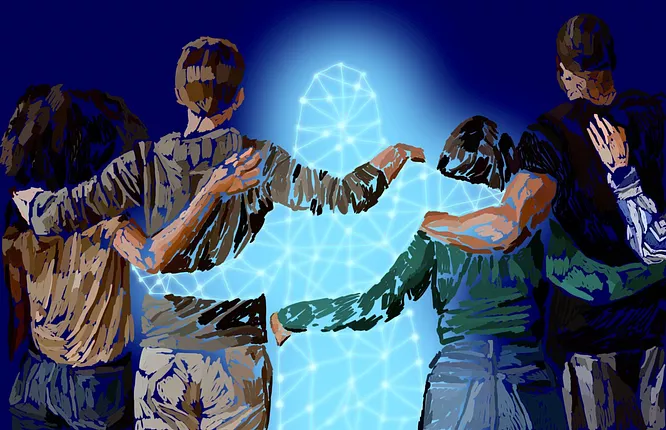GEN AI & human identity and rights

Defending Human Identity & Rights in the AI Era
Artificial Intelligence has become the greatest imitator in human history.
It can write novels, paint portraits, compose symphonies, and mimic voices — all by learning from our collective digital footprint.
As generative AI spreads into every part of society, the question is no longer what machines can do, but what they should be allowed to do. Around the world, governments are beginning to draw that line.
The Copyright & Authorship Crisis
Generative AI models are trained on massive datasets of text, images, music, and video — much of which belongs to real people. Authors, artists, and musicians argue that this practice amounts to systematic copyright infringement, since their works are used without consent or compensation.
Some researchers claim that this training process is “transformative,” like a student learning from books rather than copying them. Yet this analogy fails when AI systems can reproduce outputs nearly indistinguishable from the originals — at scale, and without credit or payment.
The moral force of “transformative use” is collapsing when AI-generated outputs are commercially distributed and monetized while creators are shut out.
This crisis forces us to redefine authorship itself. Is the creator the model, the data donor, or the user who prompts the system?
Our legal frameworks, built to protect human creativity, were never designed for algorithms that create. They must adapt — urgently.
Beyond Copyright: Identity Theft 2.0
If AI can replicate art, it can also replicate people. Deepfake technologies can clone faces, voices, and gestures with alarming precision — allowing anyone’s likeness to be copied, sold, or manipulated without consent.
This is not just about “image rights”; it’s about autonomy over one’s identity and personal narrative.
A global movement is emerging to defend these rights:
- Denmark: pioneering legislation granting individuals ownership over their image, voice, and facial features — creating a legal shield against deepfake
- European Union: the 2024 AI Act requires all AI-generated or manipulated media to be clearly labeled, to protect citizens from deception and synthetic disinformation.
- France: criminalizes sharing AI-generated depictions of real people without consent, particularly in sexual or defamatory contexts.
- China: enforces personality rights under its Civil Code, protecting both voice and likeness.
Together, these examples assert a new global principle: You own your identity — not the algorithm.
Bias, Fairness & Representation
AI systems don’t learn from neutral data.
Datasets carry the historical biases of who has been recorded, published, and represented. When minorities are underrepresented, AI reproduces that imbalance stereotyping communities.
Generative AI can reinforce inequities and without intervention, the next generation of algorithms will encode the inequalities.
Fairness requires intentional design: inclusive datasets, ethical training practices, and diverse human oversight.
Labor, Compensation & Creative Ecosystems
Artists, writers, and musicians already face displacement. AI systems can produce text, images, and music tracks at industrial scale — often for free or at negligible cost. Without fair compensation models, the creative economy risks collapse.
The most vulnerable are independent and marginalized creators who depend on their art for livelihood. If we fail to protect them, we will silence the diversity that fuels culture itself.
Manipulation, Propaganda & Truth
Generative AI isn’t just a creative tool — it’s also a weapon of manipulation : propaganda, deepfake impersonations, and synthetic “evidence” threaten the integrity of journalism, justice, and elections. When truth itself becomes uncertain, democracy weakens.
Transparency — labeling AI-generated content, tracing provenance, and ensuring media literacy — is essential to defend public trust.
Law alone cannot safeguard human dignity in the AI age. Regulation must not only punish harm but prevent it — guaranteeing rights of identity, authorship, consent, and transparency. Technology is never neutral. Every dataset and prompt encodes values.
The future of AI will depend on whether those values defend human dignity.
We call on citizens, creators, researchers, and policymakers to sign the Open Letter for Responsible AI Use, demanding that all AI systems Respect human authorship and consent, Ensure transparency in training data and outputs, Protect privacy, identity, and creative ownership, and Promote ethical innovation that serves society — not exploitation
AI has forced us to confront the deepest questions about authorship, identity, and truth. Our laws are evolving, but laws alone are not enough.
The future of creativity, privacy, and democracy depends on the choices we make today